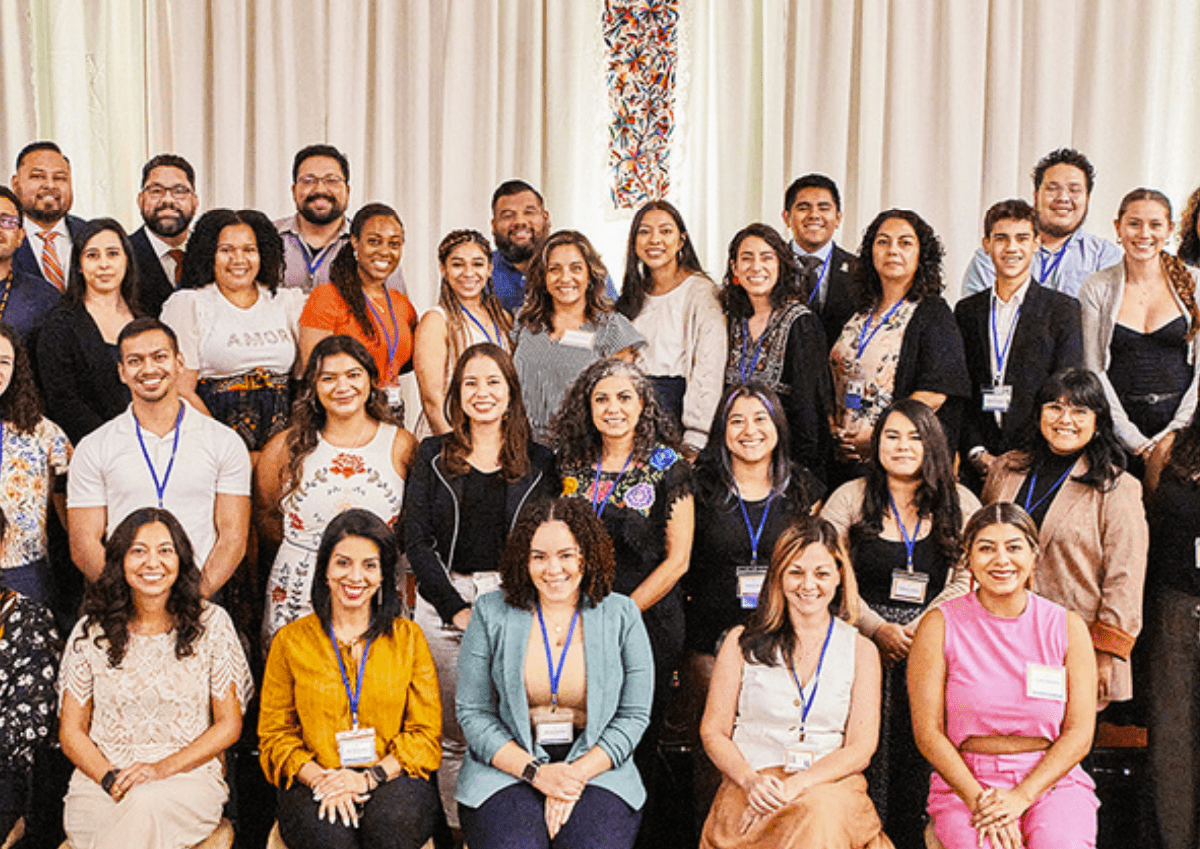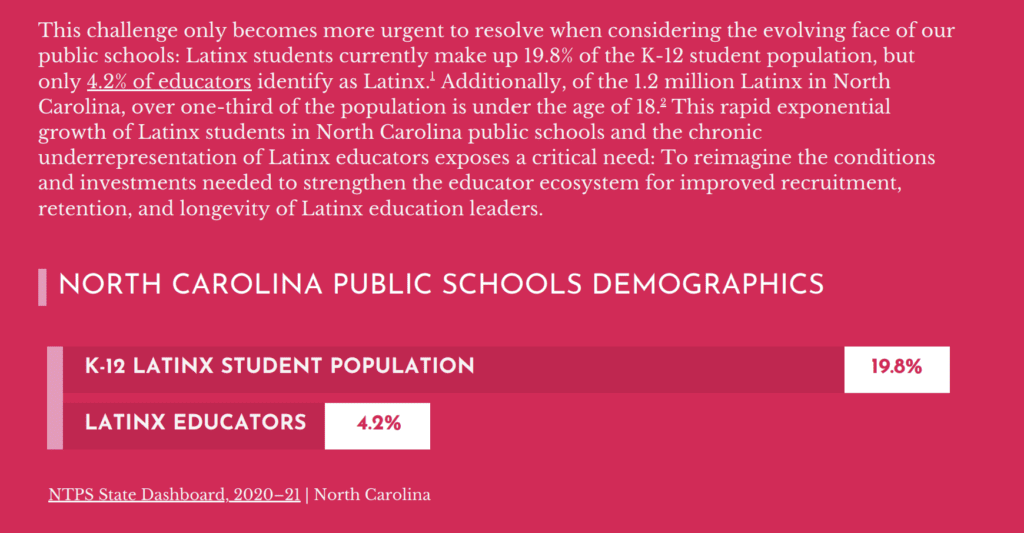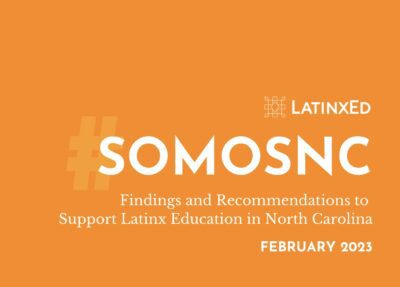

|
|
LatinxEd, a nonprofit committed to investing in Latinx leadership to advance educational equity and opportunity in North Carolina, just released its Nuestra Esperanza report, which outlines how to build an ecosystem for Latinx education leadership to thrive across the state.
LatinxEd first held an extensive statewide community listening tour that included 250 conversations with students, parents, educators, and community leaders and resulted in the SomosNC report in 2023. That report documents the history and growth of the Latinx community in North Carolina and identifies the barriers and opportunities the Latinx community encounters on their journeys toward high-quality education.
Nuestra Esperanza — which means “our hope” — marks the continuation of LatinxEd’s own learning journey to get closer to comprehensive solutions to support student success by focusing on education leaders.
Through a survey and focus groups with 100 Latinx educators and education leaders from 21 counties who have been LatinxEd fellows, Nuestra Esperanza identifies key challenges and motivations that Latinx education leaders face.
The report broadens the definition of Latinx education leaders, identifies challenges they face in their respective educational environments, and discerns their motivations for choosing to work in the field of education. It also provides recommendations and actionable steps to advance educational equity and reimagine a more diverse and supportive educational landscape.
“With Nuestra Esperanza, we aim to spark critical conversations around the experiences of Latinx education leadership in North Carolina,” said Elaine Utin, executive director and co-founder of LatinxEd in a press release. “As our state grapples with the gaps of Latinx leadership representation across our educational ecosystem, we must collectively listen and learn from emerging and current leaders to identify strategies to invest in a future that catalyzes system change and ultimately leads to, ‘more leaders, more graduates.’”
Who is an education leader and why does it matter?
According to the report, an education leader is defined as “someone who uses their power and voice to advocate for education issues that impact marginalized communities. An individual can be an education leader under this definition, regardless of job title or main field of work.”
This broader definition was needed because the study finds that “educator pipeline programs alone cannot create the ecosystem conditions necessary to recruit and retain Latinx educators successfully. It is only when education actors and other key partners across sectors collaborate and collectively invest in strengthening an equitable education ecosystem that Latinx students and families, as well as all students and families, can thrive.”
“We need everybody to count themselves in, and see yourself as part of this movement,” said Lucia Lozano Robledo, curriculum and program specialist for LatinxEd, in a briefing on the report.


The report also finds there is a cost to trailblazing as Latinx education leaders, reinforcing this need for a “village effort.” The costs include access to opportunity, barriers to professional development, cultural isolation, and deteriorating conditions for sustainability.
And the report finds “the most common motivations for Latinx education leaders in entering and staying in the field of education were connected through one encompassing force: hope.” That hope is grounded in the power of cultura, the potential of children, the practice of collective care, and the possibility of change.
Dayson Pasión, teacher advisor to the governor, said on the report briefing, “seeing the shifting demographics across the state and who is in our schools and who is in our communities gives me hope. Seeing that our community is present and upfront and out there loud and proud is giving me hope. And its also an indication of our community as a growing economic power and political power, and that is extremely hopeful for me.”
The report concludes with a call to action to education philanthropists, institutional leaders, lawmakers, parents, students, and community members.
“In the face of resistance to these efforts,
— LatinxEd’s Nuestra Esperanza report
commit to listening to our educators and invest in what we know works.”
Download the report here.
Readers of the report are invited to share their reflections on Nuestra Esperanza via this survey.



